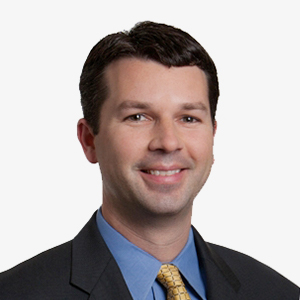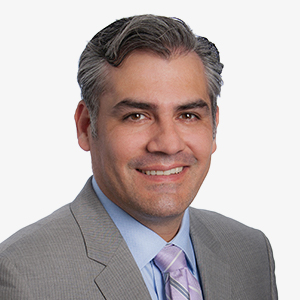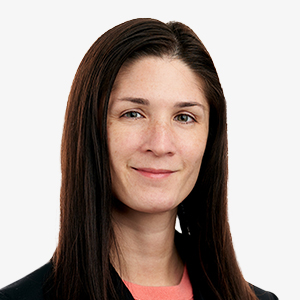Mid Cap Growth Fund
Mutual Funds | Equities
Mid Cap Growth Fund
YTD RETURN
0.00%
Why Invest
A Potential “Investing Sweet Spot”
We believe mid-caps offer an attractive risk/reward profile, combining the potential for accelerated growth with the stability typically afforded by more established businesses
Experienced Team with Highly Collaborative Co-Portfolio Management Approach
Specialized Co-PM structure leverages the team’s expertise and empowers the nimble decision-making for capitalizing on the inefficiencies and volatility of the mid growth universe
Focus On Developing an Investable Edge By “Surrounding” Target Investments
Intriguing business models and catalysts are vetted by a bottom-up approach focused on fundamental analysis, qualitative assessments and valuation appraisal
Morningstar Rating
For each retail mutual fund with at least a three-year history, Morningstar calculates a Morningstar Rating based on a Morningstar Risk-Adjusted Return measure that accounts for variation in a fund’s monthly performance (including the effects of sales charges, loads, and redemption fees), placing more emphasis on downward variations and rewarding consistent performance. The top 10% of funds in each category receive five stars, the next 22.5% receive four stars, the next 35% receive three stars, the next 22.5% receive two stars and the bottom 10% receive one star. (Each share class is counted as a fraction of one fund within this scale and rated separately, which may cause slight variations in the distribution percentages.) The Overall Morningstar Rating for a retail mutual fund is derived from a weighted average of the performance figures associated with its three-, five- and ten-year (if applicable) Morningstar Rating metrics. Ratings are ©2024 Morningstar, Inc. All Rights Reserved. The information contained herein: (1) is proprietary to Morningstar and/or its content providers; (2) may not be copied or distributed; and (3) is not warranted to be accurate, complete or timely. Neither Morningstar nor its content providers are responsible for any damages or losses arising from any use of this information.
Gross expense ratio represents the total annual operating expenses that shareholders pay (after the effect of any fee waivers and/or expense reimbursement). The Manager has contractually undertaken to waive and/or reimburse certain fees and expenses of the Fund so that the total annual operating expenses are capped (excluding interest, brokerage commissions, acquired fund fees and expenses, taxes including any expenses relating to tax reclaims, dividend and interest expenses relating to short sales, and extraordinary expenses, if any) through 08/31/2027 for Institutional Class at 0.75%, 1.11% for Class A, 1.86% for Class C, 1.36% for Class R3, 0.65% for Class R6, 1.50% for Trust Class and Advisor Class at 1.50% (each as a % of average net assets). As of the Fund’s most recent prospectuses, the Manager was not required to waive or reimburse any expenses pursuant to this arrangement. Absent such arrangements, which cannot be changed without Board approval, the returns may have been lower. Information as of the most recent prospectuses dated December 18, 2023, as amended and supplemented.
Beta is a measure of market-related risk (expressed between 0-1%) of a portfolio compared to that of the overall market, as represented by an index. The lower the beta the lower the sensitivity to the movements of the market, as represented by the index.
Standard Deviation is a statistical measure of portfolio risk. The Standard Deviation describes the average deviation of the portfolio returns from the mean portfolio return over a certain period of time. Standard Deviation measures how wide this range of returns typically is. The wider the typical range of returns, the higher the Standard Deviation of returns, and the higher the portfolio risk.
Tracking Error is a measure of the volatility of the difference between the return to an investment strategy and the return to its benchmark. It is a measure of how closely the strategy's performance may differ from that of the benchmark. A higher tracking error implies that a portfolio is actively managed versus its benchmark.
Active Share measures the percentage of mutual fund assets that are invested differently from the benchmark, and will range between 0% and 100%, Funds with an active share below 20% are likely to be pure index funds, while those with an active share between 20% and 60% are considered to be closet index funds.
Sharpe Ratio characterizes how well the return of the Fund compensates the investor for the risk taken relative to a risk free cash investment. When comparing two funds versus a common benchmark, the one with a higher Sharpe Ratio provides better return for the same risk (or, equivalently, the same return for lower risk).
Trevor Moreno, CFA, Managing Director, joined the firm in 2014. Trevor is a Co-Head of the Growth Equity Team and a Senior Co- Portfolio Manager on our Small Cap Growth and Mid Cap Growth strategies. In addition, he has Team research responsibility for the Information Technology and Communication Services sectors. Prior to joining the firm, he held assistant portfolio manager and analyst positions at Wells Capital Management and Strong Capital Management before that. Trevor began his career in 2000 at Parker Hannifin Corporation as a staff accountant and a financial analyst. He earned a BS in Accounting and Finance, as well as an MBA from the Kelley School of Business at Indiana University and has been awarded the Chartered Financial Analyst designation.


